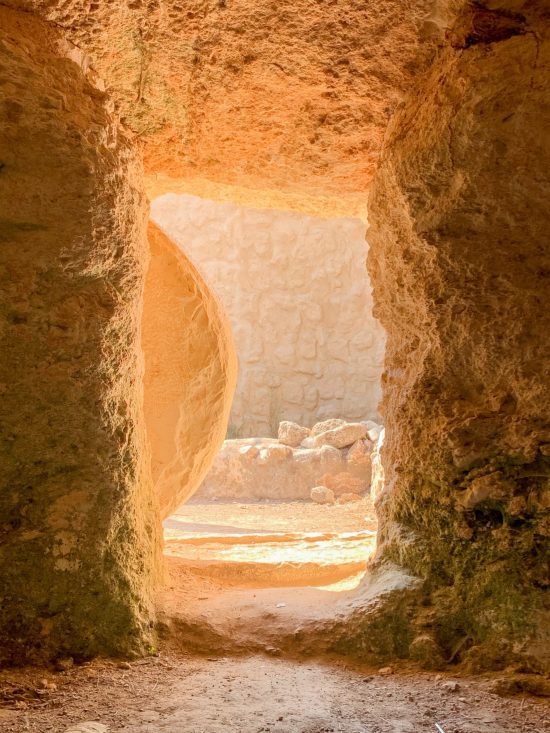
11 May Easter as a Way of Life
Dear Friends,
One of the many ways in which the church is called to be countercultural is that we understand Easter not as a day or even as a single event but as a way of life. When the women—Mary, Mary, and Salome—went to Jesus’ tomb on that first Easter morning, they expected to perform the normal burial rituals. They expected to anoint Jesus’ body, to recite the ritual prayers, and to share their grief together as they performed these tasks. And when the day of mourning was over, they expected to return to the “new normal” of life without their beloved teacher and friend.
Their expectations, however, were upended because there was no body in the tomb. And that empty tomb changed everything. Think of the repercussions of a living Jesus walking around Galilee waiting for the women and the disciples to meet him: if Jesus was raised, Jesus was Lord. If Jesus was raised, he had just taken on the power of death and defeated it. If Jesus had defeated death, then there was no power that he could not overthrow—not racism or materialism or economic oppression or climate degradation. If Jesus was raised, he could not be dismissed as merely a wise teacher or a sage moral guru. His teachings couldn’t be shelved as idealistic philosophies. If Jesus was raised, Jesus was Lord, and if Jesus was Lord, it turns our lives upside down today.
Perhaps that’s what we’re afraid of—not that the Easter story is false, but that it’s true. Because if it is true, it pits us against the same powers that Jesus confronted and defeated: disease and suffering, injustice and alienation, hunger and hopelessness. If Easter is true, it asks something of us which disturbs our comfort and unsettles the status quo. It asks us to live selflessly and sacrificially for the sake of community, for the sake of strangers, for the sake of the “deserving” and the “undeserving.”
I appreciate the fact that in mainline, liturgical churches, the season of Easter runs from Resurrection Sunday until Pentecost. This time invites us to continue to live with and internalize not just the event of Easter but also its ongoing implications. Because Jesus is alive, how am I called to live now? How can I be a channel through which the healing power of the Holy Spirit can flow? How can my touch, my words, my attitudes, my actions be a source of new life to someone? Where is kindness or compassion needed? What about acceptance or encouragement? Who needs to be fed or clothed or given a ride to the doctor or a shoulder to cry on?
As the women discovered, if Jesus was raised, Jesus is Lord, and that changes everything. As the Easter season continues, let’s use this liturgical season in the church to consider what it truly means to declare, “He is risen! He is risen indeed!”
Yours for the Kingdom,
Michelle

Nana Adu Gyamfi
Posted at 10:15h, 13 MayA good reminder to what, Easter should mean to the contemporary Christian now and beyond .
A good source of words to solidify the christian faith